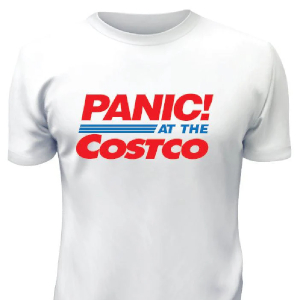Soon, COSTCO Members will have to not only show, but scan their membership cards to ENTER the store. And they’ll need photo ID. COSTCO is cracking down on membership card ‘sharing’, which lets non-members sneak in, and ‘cheats’ the chain of membership fees…
 Checkout Chaos at COSTCO: Backed up at the best of times…
Checkout Chaos at COSTCO: Backed up at the best of times…
Will the chaos now spread to the stores’ entrances?
COSTCO has long enforced a check of your membership card at the cash register. And a security guard inspection of your purchases as you exit the store. But soon, you’ll have to not only show your card, but submit it to an electronic scan just to ENTER the store.
You were warned
The company has been warning for months that it was preparing for such a crackdown. It seems that no amount of exit precautions have stemmed what COSTCO sees as a dangerous threat to its balance sheet.
And it’s reported that such a scan-to-enter system is now being piloted in at least a few locations.
What happens…
Under the new entry regime, members must not only scan their cards on an electronic terminal. They must also either have a card with a photo on the back, or have a second piece of ‘valid photo ID’ to show a human attendant. Kind of like the 2-factor security protocol used by financial institutions and government systems to protect their online users.
“If your membership is inactive, expired, or you would like to sign up for a new membership, the attendant will ask that you stop by the membership counter prior to entering the warehouse to shop,” a notice at the COSTCO website advises. “Additionally, if your membership card does not have a photo, please be prepared to show your valid photo ID. We encourage you to stop by the membership counter to have a photo taken to have on your card.”
Customer backlash
The move was announced last January. At the time, some COSTCO members said they thought – hoped – the chain was just bluffing.
Some commenters opined as the measure would cause chaos at the entry points:
“Imagine the line, as the majority of people looking for their card at the door,” one person pointed out.
Many others disagreed:
“When Costco originally opened, guests couldn’t use a members card….[O]ver the last few years that seemed to change. Why should a non member be able to use a member’s card? Rules are rules. […] If someone doesn’t have their card ready, they should be asked to step aside, as to not create a line.”
Cooler heads reasoned that scan-on-entry would help control shoplifting as well as non-member shopping:
“Costco has a very low rate of loss due to shoplifters (‘shrinkage’); other stores pass these losses on in the form of higher prices. Enforcing the membership card check at the store entrance rather than at checkout will avoid dealing with the issue of ineligible person with a full cart trying to check out. This is all what keep[s] prices so low at Costco”
And at least one commenter shared the dark opinion that the move is a COSTCO ‘cash grab’:
“They’ll line their pockets. It’s all about bringing in more money for the shareholders, not the customers. Costco brings in almost 70+ billion a [quarter] in sales.”
My take
I have to agree with the folks who say the ‘check-in’ system is a good idea. It should, indeed, help deal with shoplifting, which is a major worry of all supermarket chains these days. It should also head off embarrassing and chaotic situations at the check-out when non-members are unmasked and turned away.
On the issue of long lineups at the entry points… I believe human nature will prevail. There will be delays and related issues at first. But folks will eventually do the ‘human’ thing: If they really want to shop at COSTCO, they’ll learn to make sure they have their cards in hand when entering. To make it faster and easier for themselves.
I have one more observation to make… It may be time for COSTCO to overhaul its membership protocol. Or at least reduce the cost. The chain has, however, gone the other way recently, raising its membership fees considerably. That’s just going to make ‘cheaters’ and shoplifters more resentful of the restrictions – and more likely to find new ways to get around them!
~ Maggie J.

